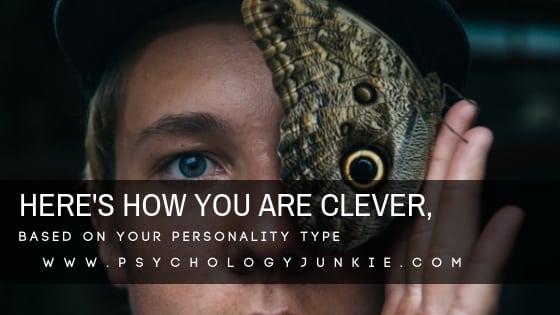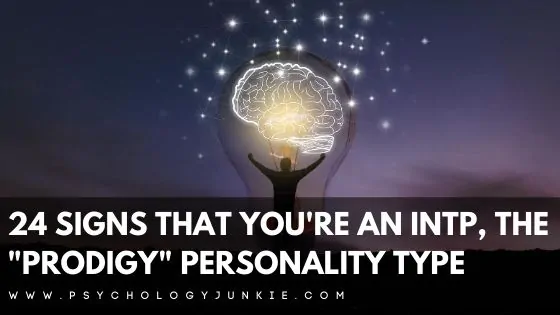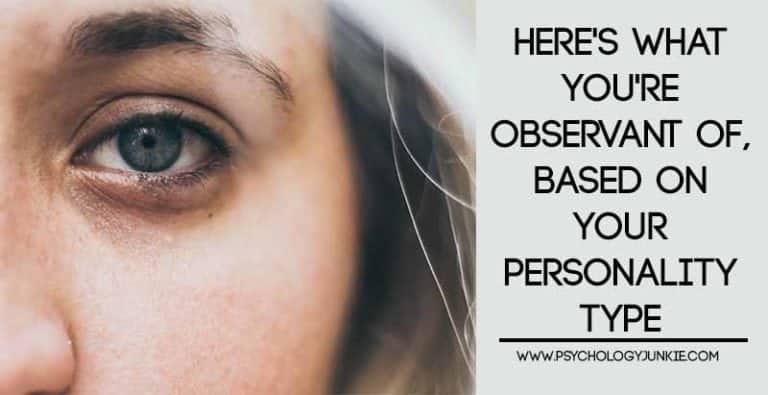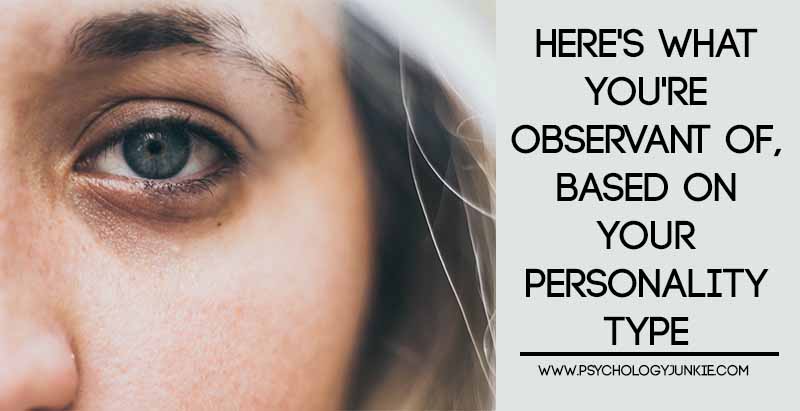Why INFJs, ISFJs, ENFJs and ESFJs Struggle to Let Go of Bad Things
If you’re an ESFJ, ENFJ, ISFJ, or INFJ type, then you probably know how hard it is to let go of bad things that happen to you. By “things” I mean something that has to do with an interaction or relationship with another person. If something bad happens that doesn’t involve another person it might be irritating, but it rarely haunts us.
For example, I’m an INFJ, and my car might have a flat tire on the way to church after I turned down the wrong road and didn’t realize it for a full 15 minutes (true story) and I’ll be fine. However, if someone makes an unkind, off-hand remark I’ll be thinking about it for days.

All the FJ types in the Myers-Briggs® system make decisions using a cognitive function called Extraverted Feeling. Personality Hacker nicknames it “Harmony,” which I think is a very good description. All these types crave harmony in their relationships with other people. We make decisions based on factors like how this will affect others and what gets everyone’s needs met. This gives us a valuable and unique perspective on the world, but it can also set us up for some deep heartache.
Find out more about cognitive functions in this article:
An Introduction to the Cognitive Functions in Myers-Briggs® Theory
What’s Going On With Our Feeling Side
Because FJ types are so tuned-in to what’s going on with the people around us, we’re hyper-aware of anything that might go wrong in our relationships. When something does go wrong (or even just feels like it went wrong), we have a tendency to stew over it. For example …
- An ESFJ who’s so friendly they come off as flirtatious, then eats themselves up with guilt over people they have to turn-down.
- An ISFJ who accepts a leadership role, then sinks into depression when a tiny percentage of the people they’re leading expresses criticism.
- An ENFJ who wears themselves out trying to meet the needs of all their friends, then worries that their need for some down-time will cost them their friendships.
- An INFJ who awkwardly opens up to someone, then lies awake at night mentally editing every social interaction from the past 10 years.
Some FJ types report that they feel other people’s emotions like their own feelings. Others describe themselves as extra sympathetic or just in-tune with people. Some aren’t sure why they respond so strongly to other people’s words and emotions. Regardless of how they talk about it, the fact is that FJ types are going to pick up on and/or care deeply about what other people say, think, and feel about them.
Related Article:
How Do YOU Use Extraverted Feeling?
It Gets (A Little) Easier
One of the biggest personal growth challenges that FJ types face is learning to use their Extraverted Feeling in a healthy way. We FJ types need to start including ourselves in “everyone” when we try to meet everyone’s needs. We need to learn how to create harmony deliberately, rather than just avoiding conflict and hoping things work out for the best. And we have to learn that we can’t always have perfect interactions with everyone, and that’s not the end of the world.
Most of us aren’t there yet, at least not entirely. Even healthy FJ types will be deeply affected by things like negative comments and friction in relationships. If you’re a little less secure in yourself or less comfortable with your Fe side, then you’re going to have an even harder time letting go of the hurt that comes when anything goes wrong in a relationship or human interaction.
I think one of the most powerful things that happens when we learn about our personality types is that we get an opportunity to understand why our minds work the way they do. Spending extra time thinking about people’s unkind words, pondering how a conversation could have gone better, or hating conflict more than another person doesn’t mean there’s something wrong with you. It might just mean you’re a perfectly normal FJ type who’s hardwired to care deeply about other people and social interactions. That knowledge can help you accept this side of your personality, and maybe even give you the freedom to start letting go of hurts that touched the beautiful, harmony-loving side of your personality.
Related Article:
10 Signs That You Might Be an Extraverted Feeler
Wrapping Things Up
I decided to write this blog post after talking with my ISFJ dad about how deeply he’s been affected by the critical comments of a few individuals in our church group, which made him think of every critical thing that’s been said about him in the past as well. Talking with him reminded me of how much I also struggle with letting go of conflicts, disagreements, and criticisms (even “little” ones). The same is true for the ESFJs and ENFJs I know, as well as other ISFJs and INFJs.
It’s our Extroverted Feeling side that makes it so hard to let go of things that wound the part of us that desires harmony in all our interactions. But this aspect of our personality is also the part that lets us connect with people in powerful ways. So let’s try to embrace our Feeling side as a gift rather than fighting it or beating ourselves up over how hard it is for us to let go when something hurts us. That’s what I’m going to try to do, and I hope you can as well.
Your turn …
What do you find the most challenging about being an FJ type? And what do you love about your Feeling side? Let us know in the comments section!
Marissa Baker is the author of The INFJ Handbook (available in the Amazon Kindle Store). You can find her online at LikeAnAnchor.com where she blogs about personal growth and development from a Christian perspective.
Subscribe to Our Newsletter

Want to discover more about personality type? Get the inside scoop with Susan Storm on all things typological, along with special subscriber freebies, and discounts on new eBooks and courses! Join our newsletter today!












Great article; loved the last paragraph. Thanks for all this, really helping…ME
(Got a little confused on who to attribute the article to, so I thanked the Archor girl, too;) ) haha
Good morning,
I mentioned to Susan a few days ago that I had confirmed my best fit type as INTP through several sessions with Mark Hunziker. (See comments at https://www.psychologyjunkie.com/2018/08/31/heres-what-you-need-on-a-bad-day-based-on-your-personality-type/ for her reply.) The article above surprisingly resonates very strongly with my inferior Fe, especially in the area of letting go of conflict and criticism. However, since my Fe is inferior, there is a slight twist.
At times, I am tormented by *my* past actions or words that hurt someone else or gave me the impression that I had hurt someone else. Demonic Fi in the eighth position (Beebe’s model) with the help of tertiary Si *never* lets me forget my transgressions. Poor little Fe struggles to “make it right.” I am mindful of verse three in the 51st Psalm: “For I acknowledge my transgressions, and my sin is ever before me.”
I can understand so much more and be much more forgiving of myself, and others, now that I have gained a working knowledge of depth typology. I enjoy a greater degree of harmony with others and perhaps more importantly, with myself. (It also helps to be 56 years old ?!) Full individuation is a worthy goal, and I believe it aligns very well with Matthew 5:48, “Be ye therefore perfect, even as your Father which is in heaven is perfect.” As you may know, perfection in the New Testament points primarily to the concept of completion, of working patiently toward a holistic harmony of physical, mental, and spiritual *being*. After all, we have all been created in His image and in His likeness (Genesis 1:26-27.)
I have much more to share, but I don’t wish to wear out my welcome. Please continue to open your heart to the world. (Yes, my inferior Fe is quite perceptive, if my dominant Ti will *permit* it to function consciously for a moment or two and let me read between the lines to see the real you.) I have discovered that being bold and brave enough to bare my true self is the greatest gift I can share with this world. If only others recognized that self trust is the foundation for all relationships–true vulnerability is such a powerful force for good.
With highest regards,
Gilbert
This is spot on. As an INFJ, any kind of social problem bothers me, and I tend to worry about it into oblivion. I accept my feeling side, but I wish that sometimes I could just let certain things roll off of me.
I love that i consider others and can empathize. Sometimes it’s overwhelming thoug
Online interactions as an INFJ are also torturous, as you keep trying to grasp onto the emotional subtext of an interaction. However, as it is from a distance without being able to read body language, very often I get it wrong, frequently erring in a negative direction if there are multiple possible connotations.
Holy Cow! I don’t think I could agree with you more as I am an INFJ as well. To be honest, I have “jumped” at people online for things they have said that I took offense to that was not meant or intended to offend me at all. It sucks.
I’ve recently had to remove two “friends” from my life but still see them regularly due to school run schedules. Every time I see them, it reminds me that I was the one who had to remove them because they behaved selfishly and were untrustworthy. It still feels like I caused it though by doing too much for them and doing the right thing. I rationally know that my actions were right and not having them in my life is better, but I dwell on it daily because I know both of them think I am the bad friend. I wish my door slam didn’t still have their foot wedged in it! Not seeing them would make it much easier to not rethink the scenarios over and over again and, because I understand that they are both damaged individuals, it still makes me wish I could change their early life experiences that led them to be entitled, selfish adults. Hopefully it will improve but I basically have years to go until our paths no longer cross…
This was such a great article for me. I have an incredibly difficult time letting go of hurts that other people have caused me. I tend to play them over and over in my head. I’m an INFJ and never realized why I do this, or that it’s normal for people of my type. Thanks for giving me some tools and insights into learning to live with it. I love both your blog and Susan’s. Thanks so much, both of you, for doing what you do!
Still feel bad for accidentally hitting a kid with a ball in 5th grade.it’s played over in my head for 35 years.
Oh man! I relate. I’m sure he’s moved on though!!
I can totally relate to this. It’s very difficult for me to forget past conflicts and broken relationships. However, I give myself enough time to grieve and I just repeatedly play on my mind why it has to be put to an end. In that way, I’m able to convince myself that I made the right choice. As I grew older, I kind of try to care less about how other’s think and just focus on my well being. It’s unhealthy to hold grudges for too long. We react this way because we also give too much of ourselves to others and so when things go wrong we don’t know what to do or try hard to ease the pain.